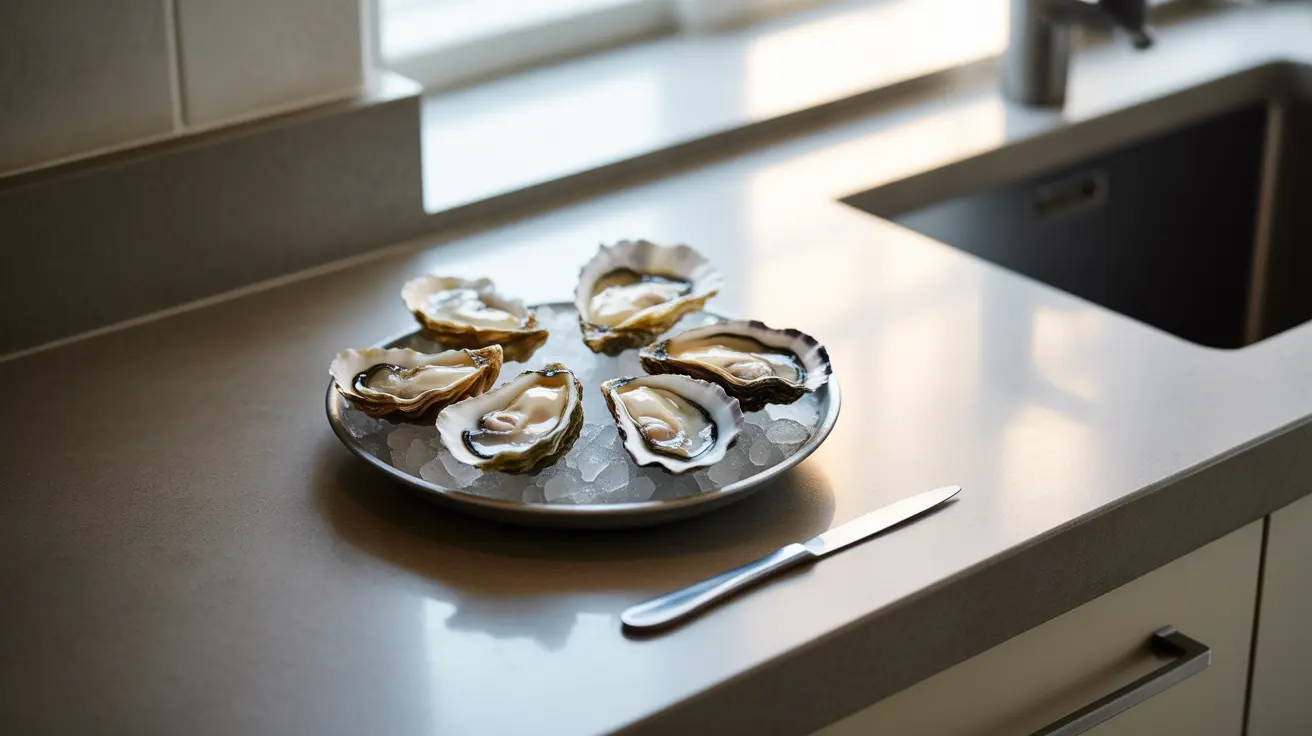Pregnancy brings many questions about food safety, and oysters are often a source of concern for expectant mothers. Understanding which types of oysters are safe to eat and how to prepare them properly is crucial for both maternal and fetal health.
This comprehensive guide will explore the safety considerations, preparation methods, and potential benefits of consuming oysters during pregnancy, helping you make informed decisions about including them in your prenatal diet.
Understanding the Risks of Raw Oysters During Pregnancy
Raw oysters pose significant risks during pregnancy due to potential contamination with harmful bacteria, viruses, and parasites. The primary concerns include:
- Vibrio bacteria
- Norovirus
- Hepatitis A
- Harmful algal toxins
These pathogens can cause severe foodborne illness, which may be particularly dangerous during pregnancy. The immune system changes during pregnancy make expectant mothers more susceptible to foodborne infections, potentially affecting both maternal and fetal health.
Safe Preparation Methods for Pregnant Women
Properly cooking oysters is essential to eliminate harmful pathogens and make them safe for consumption during pregnancy. Here are the recommended cooking methods:
Boiling
- Boil for at least 3-5 minutes after shells open
- Discard any shells that don't open during cooking
Frying
- Cook until the edges curl
- Ensure internal temperature reaches 145°F (63°C)
Baking or Broiling
- Cook until shells open completely
- Continue cooking for an additional 3-5 minutes
Nutritional Benefits of Cooked Oysters During Pregnancy
When properly prepared, oysters can provide important nutrients beneficial for pregnancy:
- Iron - supports increased blood volume
- Zinc - essential for fetal development
- Omega-3 fatty acids - important for brain development
- Vitamin B12 - supports nervous system development
- Protein - crucial for fetal growth
Guidelines for Consuming Smoked Oysters
Commercially canned smoked oysters are generally safe during pregnancy when they come from reputable sources. However, avoid locally smoked oysters unless they've been fully cooked to safe temperatures. Always check packaging dates and ensure proper storage.
Recommended Frequency and Portion Sizes
When consuming properly cooked oysters during pregnancy, moderation is key. Consider these guidelines:
- Limit intake to 2-3 servings per week
- Keep portions to 3-6 oysters per serving
- Always source from reliable vendors
- Ensure proper storage and preparation
Frequently Asked Questions
Can I eat oysters while pregnant, and what are the risks if they are raw?
Raw oysters should be avoided during pregnancy due to the risk of harmful bacteria, viruses, and parasites that can cause severe foodborne illness. Only consume fully cooked oysters while pregnant.
How do I ensure oysters are fully cooked to avoid bacteria during pregnancy?
Cook oysters until their shells open completely, then continue cooking for an additional 3-5 minutes. For shucked oysters, cook until the edges curl and the internal temperature reaches 145°F (63°C).
What are the health benefits of eating cooked oysters during pregnancy?
Cooked oysters provide essential nutrients including iron, zinc, omega-3 fatty acids, vitamin B12, and protein, all of which support healthy fetal development and maternal health during pregnancy.
Is it safe to eat smoked oysters during pregnancy?
Commercially canned smoked oysters from reputable sources are generally safe during pregnancy. However, avoid locally smoked oysters unless they've been fully cooked to safe temperatures.
How often can I safely consume cooked oysters during pregnancy?
Pregnant women can safely consume properly cooked oysters 2-3 times per week, with portions of 3-6 oysters per serving. Always ensure they're from reliable sources and properly prepared.




